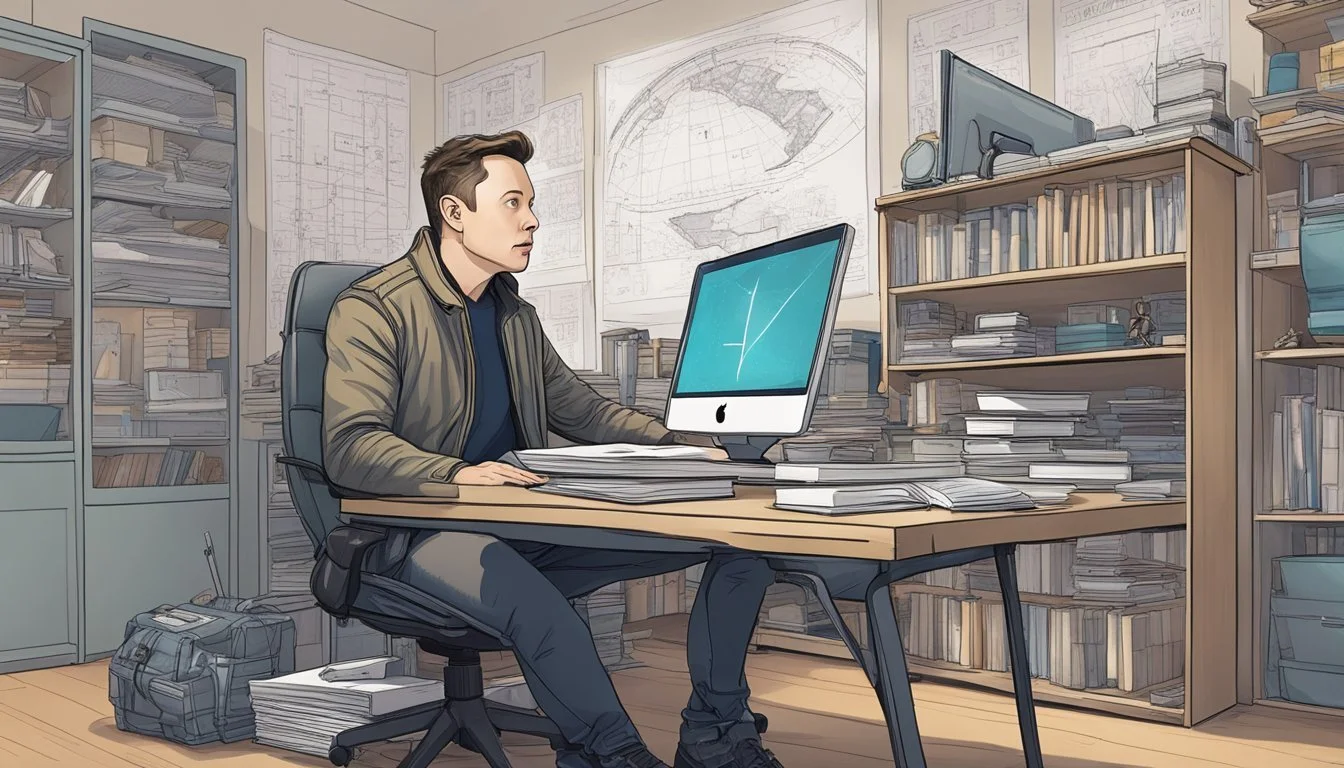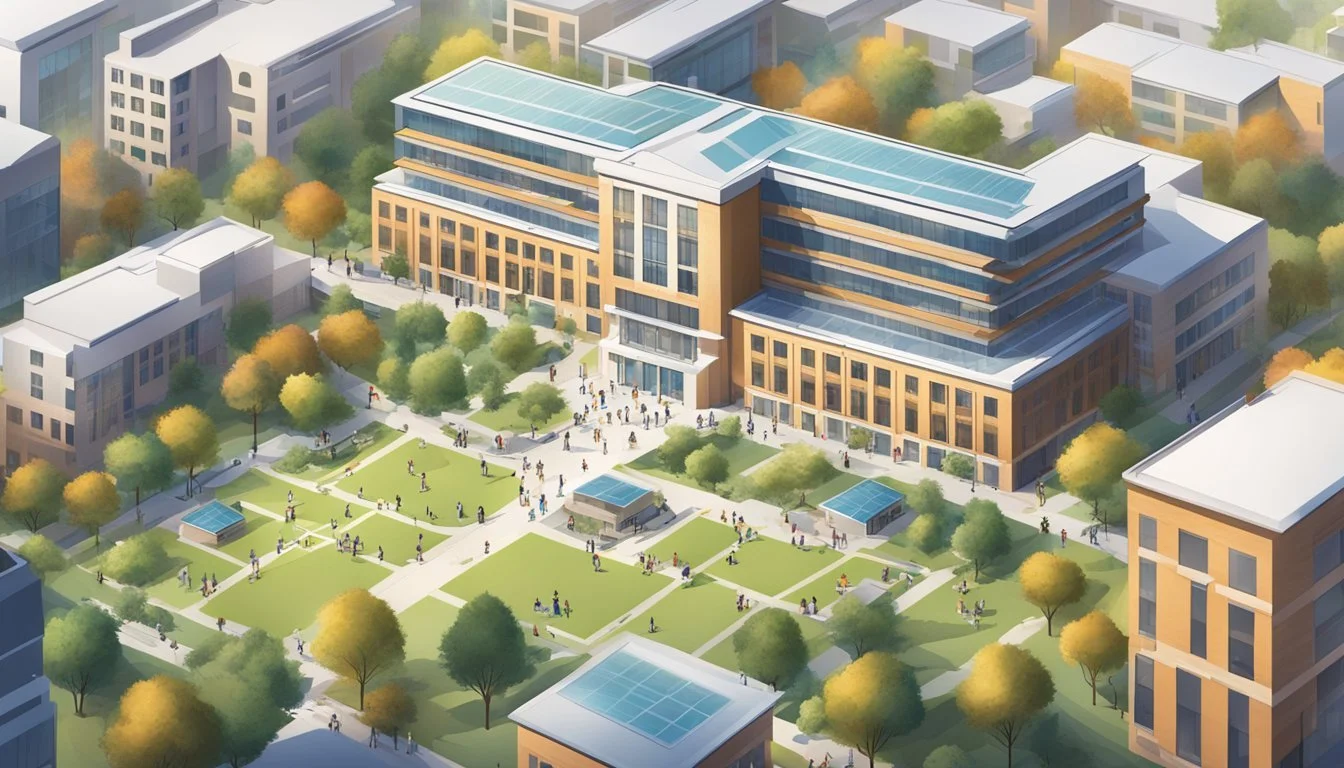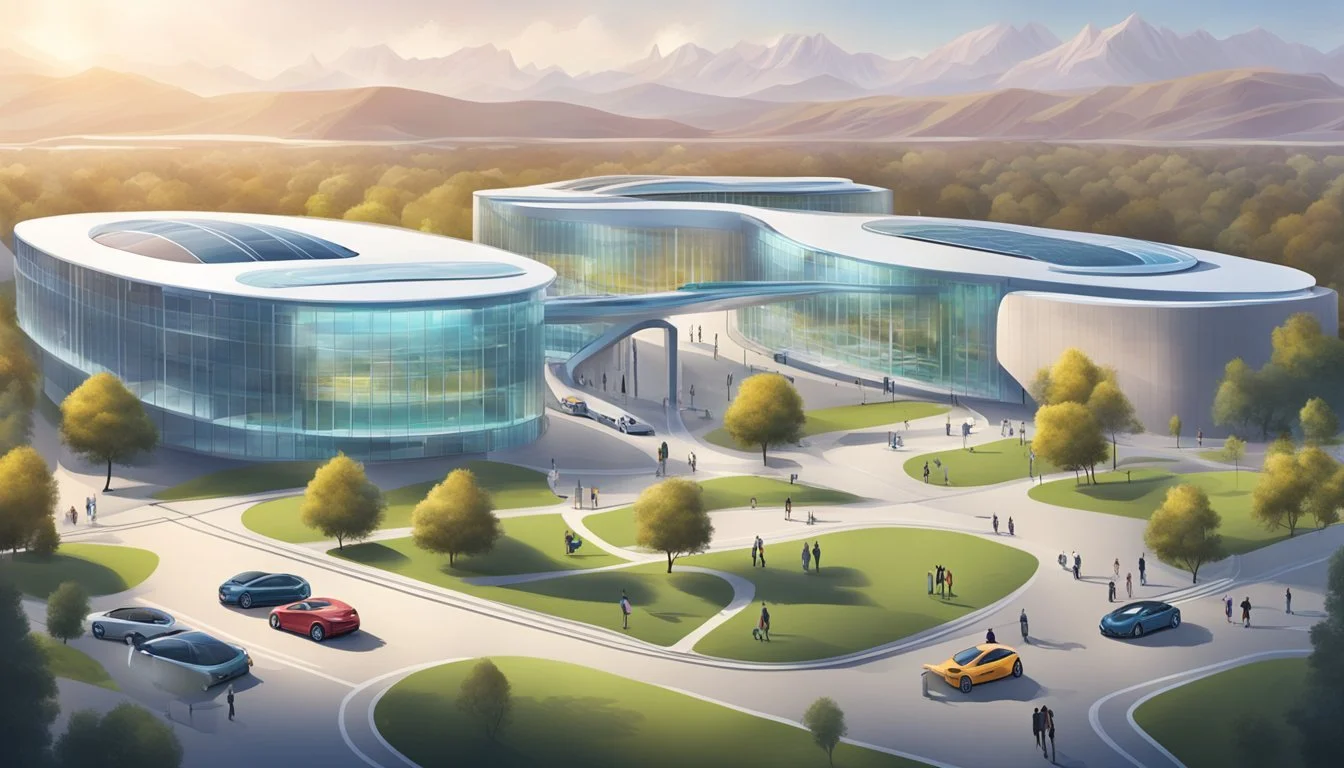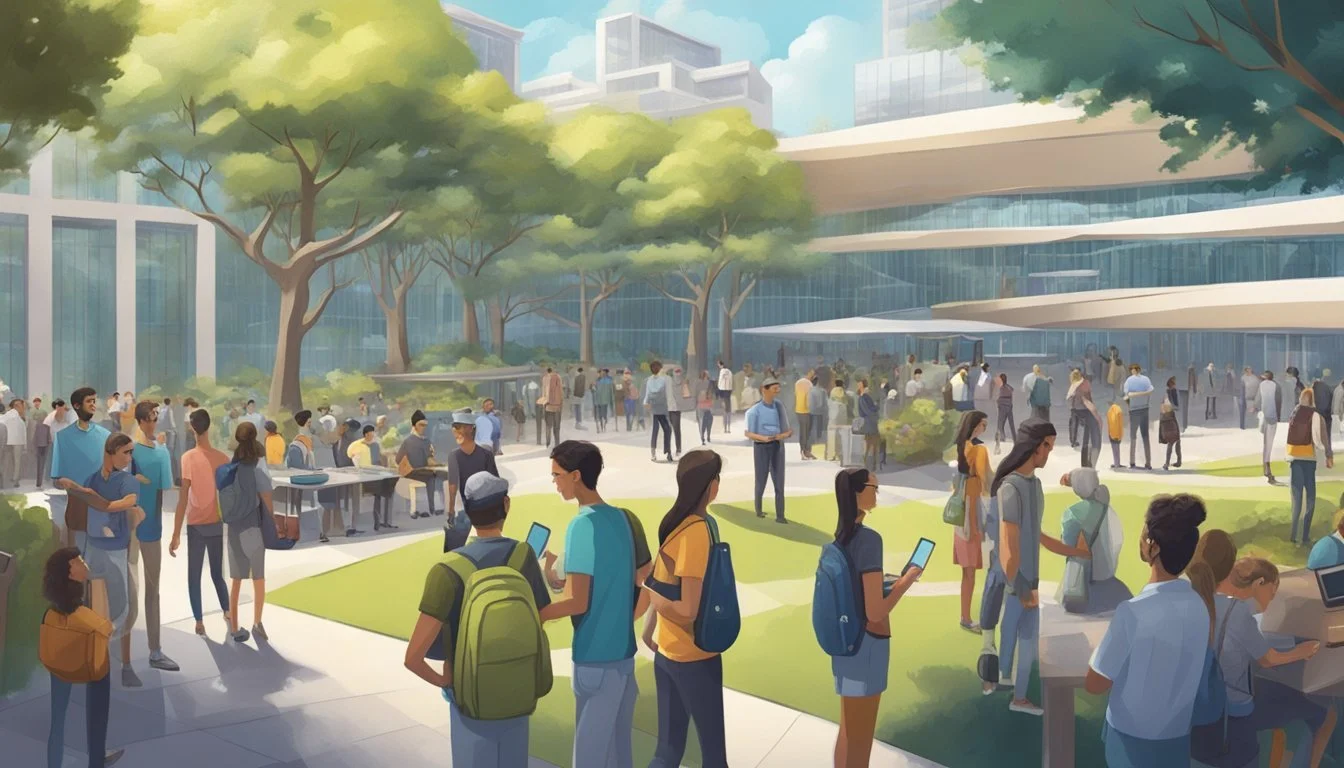Exploring Elon Musks Formative College Years
Elon Musk's educational journey began in South Africa and led him to prestigious institutions in North America. After immigrating to Canada, he attended Queen's University in Ontario for two years before transferring to the University of Pennsylvania.
At the University of Pennsylvania, Musk earned two bachelor's degrees - one in physics and another in economics with a concentration in finance and entrepreneurial management. This dual education laid the foundation for his future endeavors in technology and business.
Musk briefly pursued further studies at Stanford University, enrolling in a Ph.D. program in physics. However, he left after just a few days to pursue his entrepreneurial ambitions. Despite not completing an advanced degree, Musk's undergraduate education played a crucial role in shaping his innovative mindset and diverse skill set.
Early Life and Education
Elon Musk's formative years spanned South Africa and Canada, shaping his intellectual curiosity and drive. His early education laid the groundwork for his future technological innovations and entrepreneurial pursuits.
Birthplace and Childhood
Elon Reeve Musk was born on June 28, 1971, in Pretoria, South Africa. He grew up in the country's administrative capital, surrounded by a family with diverse roots. His mother, Maye, was a Canadian-born model and dietitian, while his father, Errol, worked as an electromechanical engineer.
From a young age, Musk displayed an exceptional aptitude for technology. He taught himself computer programming, quickly surpassing his peers in technical skills. His voracious appetite for knowledge led him to devour books at an astonishing rate.
Musk's childhood was marked by his status as an outsider. Quiet and nerdy, he often retreated into the world of books and computers. His photographic memory allowed him to retain vast amounts of information, further fueling his intellectual growth.
Immigration to Canada
At 17, Musk made a pivotal decision to leave South Africa. He immigrated to Canada in 1989, leveraging his mother's Canadian citizenship to gain entry. This move was partly motivated by a desire to avoid mandatory military service in South Africa and to pursue greater opportunities abroad.
Musk's transition to Canada marked the beginning of his international academic journey. He initially settled in with relatives, adapting to a new culture and educational system. This period of adjustment would prove crucial in shaping his future trajectory.
Pre-University Education
Before entering university, Musk attended Waterkloof House Preparatory School and Bryanston High School in South Africa. He completed his secondary education at Pretoria Boys High School, where his academic prowess became increasingly evident.
In Canada, Musk briefly attended high school to meet university entry requirements. His advanced skills allowed him to quickly satisfy these prerequisites, paving the way for his higher education.
Musk's pre-university years were characterized by:
Self-directed learning in computer programming
Voracious reading habits, including encyclopedias
Development of a photographic memory
Early entrepreneurial ventures
These experiences laid a strong foundation for his future academic pursuits and innovative career path.
Higher Education Journey
Elon Musk's college years were marked by academic excellence and a diverse educational path. His pursuit of knowledge led him through multiple institutions and fields of study.
University of Pennsylvania
Elon Musk completed his undergraduate studies at the University of Pennsylvania. He enrolled at this prestigious Ivy League institution in 1992 after transferring from Queen's University in Canada. The University of Pennsylvania offered Musk a rigorous academic environment and access to world-class resources.
During his time at Penn, Musk immersed himself in a challenging curriculum. He took advantage of the university's renowned faculty and research opportunities. This period was crucial in shaping his intellectual growth and future ambitions.
Dual Degrees
At the University of Pennsylvania, Musk pursued an ambitious academic program. He earned two bachelor's degrees simultaneously. His first degree was in Physics, reflecting his deep interest in the fundamental laws of the universe. The second was in Economics from the Wharton School.
This combination of Physics and Economics was unusual but proved to be highly beneficial. It provided Musk with a unique skill set. The physics degree gave him a strong scientific foundation. The economics degree equipped him with business acumen.
Transfer from Queen's University
Before attending the University of Pennsylvania, Musk began his higher education at Queen's University in Kingston, Ontario. He spent two years at this Canadian institution from 1989 to 1992.
The decision to transfer was motivated by Musk's desire to pursue opportunities in the United States. Queen's University played a significant role in his early academic development. It provided him with a solid foundation in undergraduate studies.
Ivy League Experience
Musk's time at the University of Pennsylvania from 1992 to 1997 exposed him to the Ivy League educational system. This experience was characterized by rigorous academics, networking opportunities, and exposure to diverse ideas.
The Ivy League environment fostered Musk's entrepreneurial spirit. He engaged in various extracurricular activities and projects. These experiences complemented his classroom learning.
Musk graduated from Penn in 1997 with his dual degrees. This achievement marked the culmination of his undergraduate studies and set the stage for his future endeavors in technology and business.
Brief Stanford Stint
Elon Musk's time at Stanford University was short but impactful. He enrolled in a Ph.D. program but left after just two days to pursue entrepreneurial ventures during the burgeoning Internet boom.
Ph.D. Program
In 1995, Musk began a Ph.D. program in energy physics and materials science at Stanford University. The prestigious institution attracted him with its cutting-edge research opportunities and proximity to Silicon Valley's tech hub.
Musk's academic focus aligned with his growing interest in sustainable energy solutions. Stanford's program offered access to advanced laboratories and renowned faculty in the field.
Pivotal Decision
Despite the program's potential, Musk made the bold choice to leave Stanford after only 48 hours. He recognized the immense opportunities presented by the rapidly expanding Internet industry.
This decision placed Musk among notable tech entrepreneurs who became college dropouts. He opted to dive into the world of startups, believing the timing was crucial for success in the digital realm.
Musk's departure from Stanford marked the beginning of his entrepreneurial journey. He co-founded Zip2, a web software company, shortly after leaving the university. This move set the stage for his future ventures in technology and innovation.
Entrepreneurial Ventures
Elon Musk's entrepreneurial journey spans multiple groundbreaking companies across diverse industries. His ventures have revolutionized online payments, space exploration, electric vehicles, renewable energy, and emerging technologies.
Zip2 Corporation
Musk's first major business venture was Zip2, founded in 1995 with his brother Kimbal. The company provided online business directories and city guides for newspapers. Musk worked tirelessly, often sleeping at the office and coding through the night. Zip2 gained traction, securing contracts with major publications like The New York Times and Chicago Tribune. In 1999, Compaq acquired Zip2 for nearly $300 million, with Musk receiving $22 million for his 7% share.
PayPal and X.com
In 1999, Musk used his Zip2 earnings to co-found X.com, an online financial services company. X.com merged with Confinity in 2000, forming PayPal. The company pioneered secure online money transfers. Musk served as CEO until 2000 and remained the largest shareholder. In 2002, eBay acquired PayPal for $1.5 billion, with Musk receiving $165 million for his 11.7% stake.
SpaceX and the Space Industry
Musk founded Space Exploration Technologies (SpaceX) in 2002 with the ambitious goal of reducing space transportation costs and enabling Mars colonization. SpaceX developed the Falcon 1, Falcon 9, and Falcon Heavy rockets, as well as the Dragon spacecraft. The company achieved numerous milestones:
First privately funded liquid-fueled rocket to reach orbit (Falcon 1, 2008)
First private company to send a spacecraft to the International Space Station (Dragon, 2012)
First orbital class rocket capable of reflight (Falcon 9, 2017)
Most powerful operational rocket in the world (Falcon Heavy, 2018)
SpaceX continues to innovate with its Starship project, aiming for interplanetary travel.
Tesla Motors and Electric Vehicles
Musk joined Tesla Motors in 2004, leading a Series A round of investment. He became chairman of the board and later CEO in 2008. Under his leadership, Tesla has:
Launched the Roadster (2008), Model S (2012), Model X (2015), Model 3 (2017), and Model Y (2020)
Developed advanced battery technology and autonomous driving features
Built a network of Supercharger stations for long-distance travel
Expanded into energy storage with Powerwall and Powerpack products
Tesla has become the world's most valuable automaker, accelerating the transition to sustainable transportation.
SolarCity and Renewable Energy
Musk conceptualized SolarCity in 2006, with his cousins Lyndon and Peter Rive co-founding the company. SolarCity became the largest solar energy services provider in the U.S. Key achievements include:
Innovative solar panel leasing model
Development of high-efficiency solar roof tiles
Integration of solar products with Tesla's energy storage solutions
Tesla acquired SolarCity in 2016 for $2.6 billion, creating a vertically integrated sustainable energy company.
The Boring Company and Infrastructure
Musk founded The Boring Company in 2016 to address urban traffic congestion through underground transportation networks. Notable projects:
Las Vegas Convention Center Loop (completed 2021)
Proposed tunnels in Los Angeles, Chicago, and Baltimore
Development of faster, more efficient tunneling technology
The company also gained attention for unconventional merchandise sales, including flamethrowers.
Neuralink and AI
Founded by Musk in 2016, Neuralink aims to develop brain-computer interfaces (BCIs) to connect humans with artificial intelligence. The company's goals include:
Treating neurological conditions
Enhancing human cognitive abilities
Enabling direct neural control of devices
Neuralink has demonstrated its technology in animal trials and is working towards human clinical trials. Musk envisions BCIs as a crucial step in human-AI symbiosis.
Musk's Influence on Technology and Society
Elon Musk has left an indelible mark on multiple industries through his ambitious ventures and innovative approaches. His companies have reshaped transportation, space technology, artificial intelligence, and social media platforms.
Advancements in Electric Cars
Tesla, under Musk's leadership, has revolutionized the automotive industry. The company's electric vehicles have set new standards for performance, range, and design. Tesla's Model S, 3, X, and Y have popularized electric cars among consumers.
The Gigafactory concept has transformed battery production, reducing costs and increasing capacity. This has made electric vehicles more affordable and accessible to a wider market.
Tesla's Autopilot system has pushed the boundaries of autonomous driving technology. The company continues to refine and expand its self-driving capabilities, aiming for full autonomy in the future.
Space Exploration Goals
SpaceX, founded by Musk in 2002, has dramatically lowered the cost of space launches through reusable rocket technology. The Falcon 9 and Falcon Heavy rockets have successfully completed numerous missions for both commercial and government clients.
The company's Starship project aims to enable human colonization of Mars. This ambitious goal has reignited public interest in space exploration and interplanetary travel.
SpaceX's Starlink satellite constellation is working to provide global high-speed internet access. This project has the potential to connect remote areas and underserved populations worldwide.
Contributions to AI and OpenAI
Musk co-founded OpenAI in 2015 to promote and develop friendly artificial intelligence. The organization has made significant contributions to AI research, including the development of GPT (Generative Pre-trained Transformer) models.
Although Musk is no longer directly involved with OpenAI, his initial support helped establish it as a leading AI research institution. The company's work continues to influence the field of artificial intelligence and its ethical considerations.
Musk has also been vocal about the potential risks of AI, advocating for responsible development and regulation of the technology. His views have sparked important discussions about AI safety and ethics in the tech industry.
Social Media and Twitter
Musk's acquisition of Twitter in 2022 has had a significant impact on the social media landscape. His leadership has brought changes to the platform's content moderation policies and verification system.
The introduction of Twitter Blue, a subscription service, has altered the platform's revenue model. This shift has implications for how social media companies monetize their services.
Musk's own use of Twitter as a communication tool has demonstrated the platform's power for business leaders and public figures. His tweets have influenced stock prices, cryptocurrencies, and public discourse on various topics.
Public Perception and Personal Life
Elon Musk's public image and personal life have garnered significant attention. His ventures and controversial statements have shaped media coverage and public opinion. Several books and biographies explore his life and achievements.
Media Coverage and Public Image
Elon Musk's public perception varies widely. A Quinnipiac poll found Republicans (63%) and white men (51%) viewed him most favorably. Democrats (9%) and Black respondents (17%) held less positive views. His ambitious projects and outspoken nature on social media contribute to his polarizing image.
Musk's statements and actions often make headlines. His acquisition of Twitter (now X) and subsequent policy changes sparked debates about free speech and content moderation. His companies Tesla and SpaceX frequently attract media attention for their innovative technologies and occasional setbacks.
Books and Biographies
Several books detail Musk's life and career. Ashlee Vance's "Elon Musk: Tesla, SpaceX, and the Quest for a Fantastic Future" offers an in-depth look at his background and business ventures. This biography provides insights into Musk's childhood, early entrepreneurial efforts, and the development of his companies.
Other works focus on specific aspects of Musk's career or personality. These books often explore his leadership style, vision for the future, and impact on various industries. Some publications analyze his business strategies and technological innovations.
Family Life and Personal Anecdotes
Musk's personal life has been subject to public scrutiny. He has fathered ten children, including twins born in 2022. His son X Æ A-12, born in 2020, gained attention for his unique name. Musk has been married three times, twice to actress Talulah Riley.
Known for his intense work ethic, Musk often speaks about working long hours and sleeping at his factories. He has shared anecdotes about his childhood in South Africa and early days as an entrepreneur in the United States. These personal stories contribute to his public image as a driven and unconventional billionaire.







